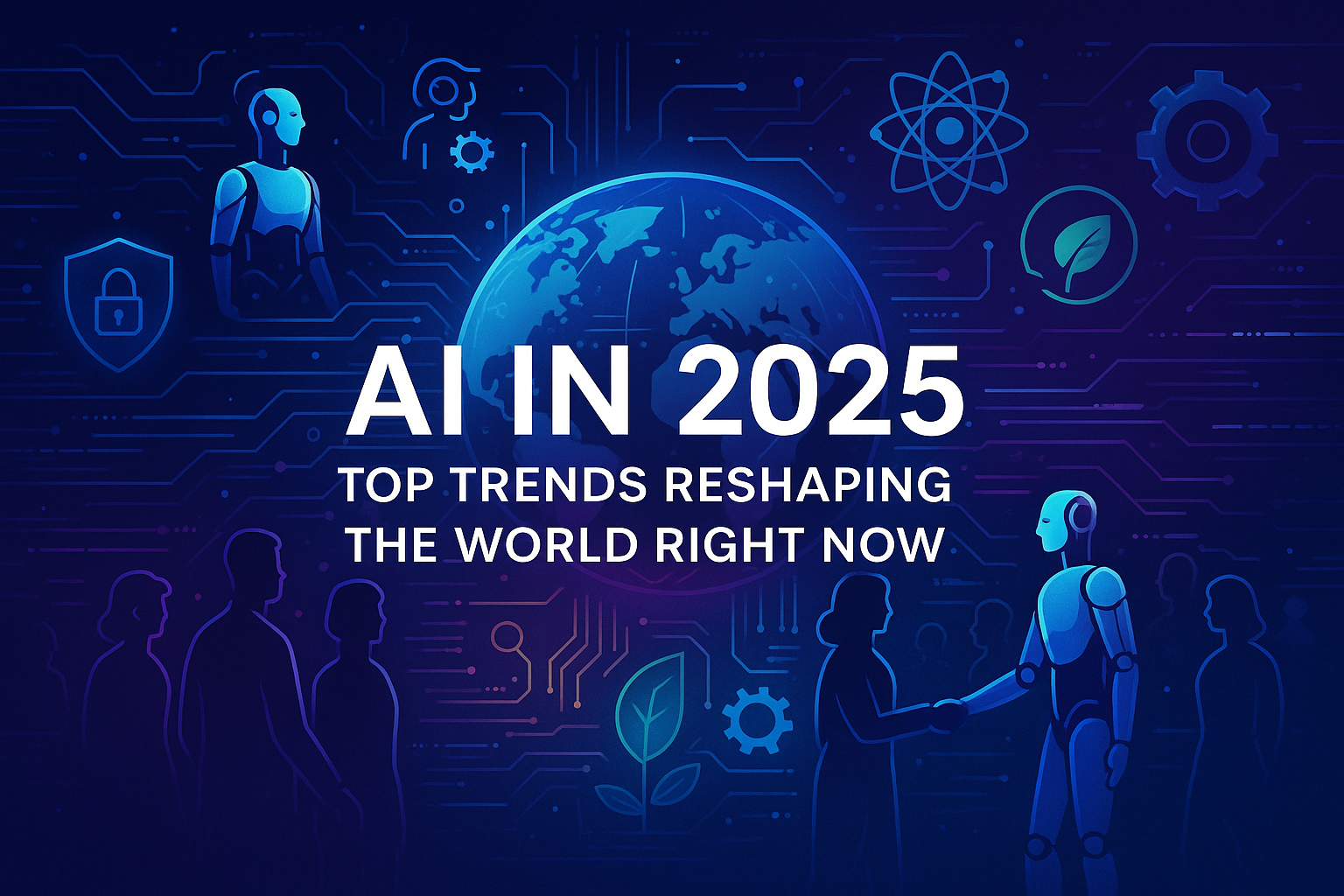Introduction
Artificial Intelligence is evolving faster than ever—what will 2025 bring? From smart assistants in our homes to AI-driven decisions in businesses, AI is already reshaping our world. In the coming years, it’s expected to become even more integrated into daily life, transforming industries, improving efficiency, and creating possibilities we could barely imagine a decade ago.
In this article, we explore the future of AI in 2025, highlighting key innovations, trends, and applications across multiple sectors. You’ll learn about next-generation machine learning, advances in natural language processing, AI-powered consumer technology, and ethical considerations shaping the industry. We’ll also examine how AI is revolutionizing healthcare, finance, education, and manufacturing, helping you anticipate how this technology will influence your work, lifestyle, and society at large.
AI Technology Advancements in 2025
Next-Generation Machine Learning
Machine learning algorithms in 2025 will be faster, smarter, and more efficient. AI systems will process massive datasets in real time, enabling predictive analytics and rapid decision-making. Businesses can respond instantly to market changes, while healthcare providers anticipate patient needs before issues arise. Smart AI algorithms will also reduce energy consumption, making AI more sustainable.
Natural Language Processing Improvements
NLP has already transformed chatbots, virtual assistants, and language translation tools. By 2025, NLP models will better understand context, emotions, and intent. Customer service bots, automated translators, and AI assistants will interact almost like humans, providing seamless support.
Computer Vision Innovations
Computer vision continues to advance rapidly. In 2025, we expect improved image recognition, facial detection, and autonomous vehicle navigation. AI-powered cameras will enhance security, quality control in manufacturing, and medical diagnostics, spotting anomalies in images with high precision. Autonomous vehicles will rely on these technologies for safer navigation and fewer accidents.
AI in Key Industries
Healthcare
- Diagnostics: AI detects diseases like cancer earlier by analyzing medical imaging.
- Personalized Medicine: Machine learning predicts the most effective treatments for individual patients.
- Robotic Surgery: AI-assisted robots allow precise, minimally invasive procedures.
AI in healthcare 2025 will also integrate wearable devices and remote monitoring, improving patient outcomes, reducing costs, and increasing accessibility.
Finance
AI helps financial institutions with fraud detection, algorithmic trading, and customer service. Transactions are analyzed in real time to flag suspicious activity, while AI chatbots enhance customer support. Predictive analytics will allow institutions to forecast trends and make informed decisions.
Education
- AI Tutoring: Personalized learning adjusts to student pace and style.
- Adaptive Platforms: AI identifies knowledge gaps and recommends resources.
AI tools also assist teachers by automating grading and providing actionable insights into student performance.
Manufacturing & Automation
- Smart Factories: AI monitors production in real time, identifying inefficiencies and predicting equipment failures.
- Predictive Maintenance: AI schedules servicing to minimize downtime and costs.
Industrial AI innovations in 2025 will make manufacturing safer, more efficient, and environmentally friendly.
AI-Powered Consumer Technology
Smart Homes & Devices
AI assistants like Alexa, Google Assistant, and Siri will become more intuitive, seamlessly managing IoT devices, optimizing energy use, and anticipating user needs.
Personalized Recommendations
By analyzing user behavior, AI will deliver highly tailored recommendations across shopping, streaming, and social media platforms, enhancing engagement and satisfaction.
Transportation & Mobility
Autonomous vehicles and AI-driven traffic management will make travel safer and more efficient. AI will optimize routes, reduce congestion, and assist self-driving navigation, making daily commutes smoother and less stressful.
Ethical and Regulatory Considerations
Data Privacy Concerns
As AI integrates into daily life, safeguarding personal information is essential. Companies must ensure data collection is transparent, secure, and compliant with privacy regulations.
Bias and Fairness
AI systems can unintentionally replicate biases in training data. In 2025, ethical AI initiatives will focus on fairness, inclusivity, and accountability, ensuring unbiased and trustworthy decisions.
Government Regulations
Regulations will guide AI development, setting standards for data usage, safety, and transparency. Explainable AI systems will allow humans to understand AI decision-making processes.
AI Trends to Watch in 2025
Generative AI Growth
Generative AI, which creates text, images, music, and videos, will explode in popularity. Artists, marketers, and content creators will increasingly rely on AI to enhance creativity and productivity.
AI in Edge Computing
Edge AI processes data locally rather than in the cloud, enabling faster decisions, lower latency, and reduced data transfer costs. Applications include autonomous vehicles and industrial IoT devices.
Collaborative AI
Humans and AI will work together in hybrid models. AI will handle repetitive tasks and complex data analysis, allowing humans to focus on strategy, creativity, and critical decision-making.
Conclusion
The future of AI in 2025 promises intelligent systems that enhance every aspect of life—from healthcare and finance to education and consumer technology. Next-generation machine learning, NLP improvements, and computer vision will drive innovations, while ethical considerations and regulations ensure responsible use.
AI will transform industries, improve efficiency, and create entirely new opportunities. By staying informed about AI innovations 2025 and trends to watch, individuals and businesses can harness AI safely and effectively. Embracing these technologies responsibly will be key to thriving in an AI-driven future.
